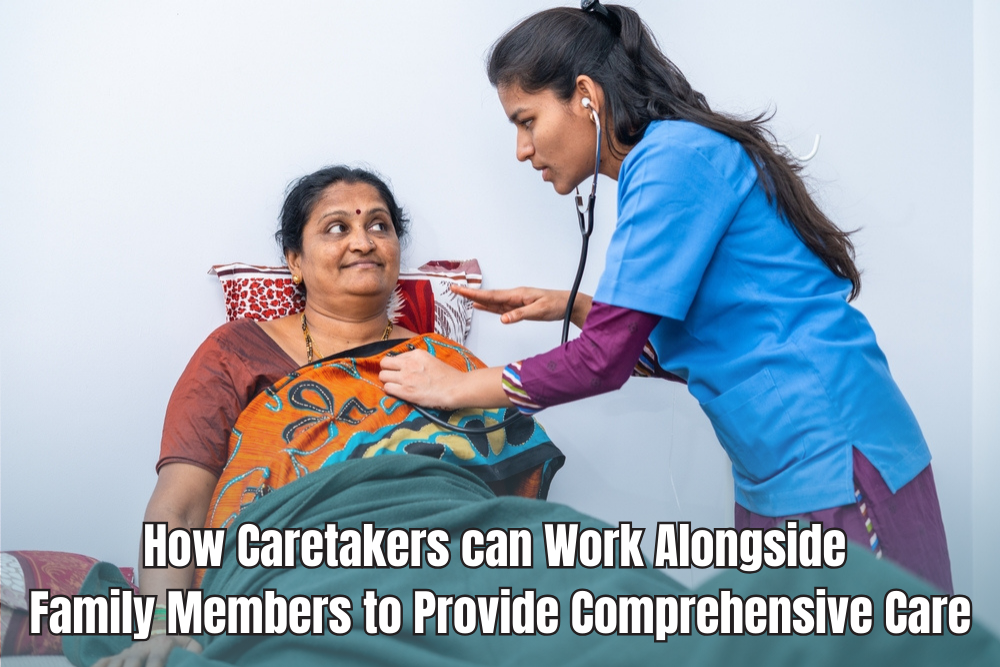Taking care of elderly family members can be a rewarding yet challenging experience. Home health aides (HHAs) step in to provide professional assistance and support, making the caregiving journey easier for families. In this article, we’ll explore how HHAs collaborate with family members to deliver comprehensive care for the elderly. From understanding their roles to addressing specific needs, this guide offers insights into creating a seamless caregiving partnership.
Understanding the Role of Home Health Aides
Home health aides are trained professionals who assist elderly individuals with daily activities and medical needs. They work in harmony with family caregivers, complementing their efforts to ensure the senior’s well-being.
Key Responsibilities of HHAs:
- Personal Care: Bathing, dressing, grooming, and hygiene.
- Medical Assistance: Administering medications, monitoring vital signs, and helping with physical therapy exercises.
- Nutritional Support: Preparing meals, ensuring dietary needs are met, and assisting with feeding if necessary.
- Companionship: Offering emotional support, engaging in conversations, and participating in recreational activities.
- Household Tasks: Light cleaning, laundry, and maintaining a safe living environment.
How HHAs Collaborate with Family Members
Home health aides work alongside family members to ensure that care is personalized and comprehensive.
- Establishing Open Communication:
Regular meetings between HHAs and family members ensure that everyone is on the same page regarding the senior’s needs and preferences.
Updates on the elder’s health and well-being help family members stay informed.
- Sharing Responsibilities:
HHAs handle time-intensive caregiving tasks, allowing family members to focus on emotional bonding and other responsibilities.
This division of labor prevents caregiver burnout and ensures consistent care.
- Understanding Cultural Preferences:
In India, respecting cultural values is essential. HHAs adapt their approach to align with the family’s traditions and the elder’s comfort.
- Building Trust:
Families and HHAs establish trust through regular interactions and transparent communication.
This trust fosters a stronger caregiving partnership.
Benefits of a Collaborative Approach
When HHAs and family members work together, the quality of care significantly improves.
- Holistic Care: Combines professional expertise with emotional connection.
- Reduced Stress: Eases the burden on family caregivers, improving their mental and physical health.
- Enhanced Safety: Continuous supervision and assistance reduce the risk of accidents.
- Better Health Outcomes: Regular monitoring and timely medical attention help manage chronic conditions effectively.
Choosing the Right Home Health Aide in India
Selecting the right HHA is crucial for ensuring optimal care for your loved ones.
- Look for professionals with proper training and experience.
- Ensure they understand the elder’s specific health conditions.
- Prioritize candidates who are patient, empathetic, and culturally sensitive.
FAQs About Home Health Aides and Family Collaboration
Q1: What qualifications should a home health aide have?
A: HHAs should have basic healthcare training, first-aid knowledge, and experience in elderly care.
Q2: How can family members ensure effective collaboration with HHAs?
A: Regular communication, setting clear expectations, and treating HHAs as part of the caregiving team foster effective collaboration.
Q3: Can HHAs handle medical emergencies?
A: While HHAs are not doctors, they are trained to manage basic medical emergencies and provide first-aid until professional help arrives.
Q4: How do HHAs respect cultural and personal preferences?
A: They adapt their caregiving approach based on the family’s values and the elder’s comfort level.
Q5: Is it expensive to hire a home health aide in India?
A: Costs vary depending on the services required and the caregiver’s experience. Many agencies offer flexible packages to fit different budgets.
Conclusion
Home health aides play a vital role in creating a balanced caregiving environment, working hand-in-hand with family members to ensure elderly individuals receive the best care possible. Their expertise, combined with the family’s emotional support, forms a comprehensive care plan tailored to the senior’s needs.
If you’re looking for professional caregiving services, Shree Swami Samarth Patients Seva offers trained and compassionate HHAs to assist your family. Visit www.sssps.in to learn more and give your loved ones the care they deserve.



